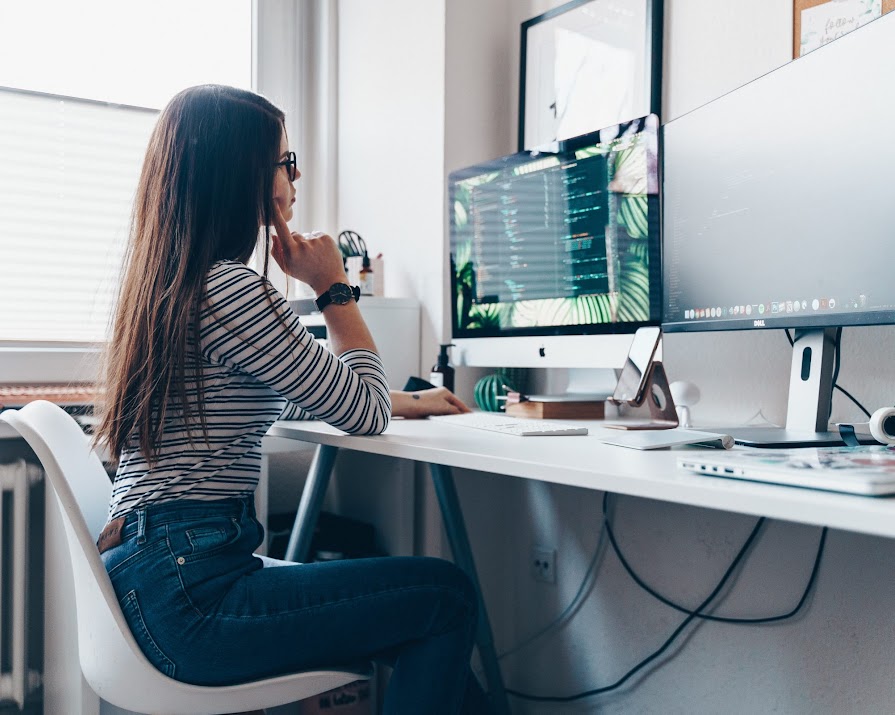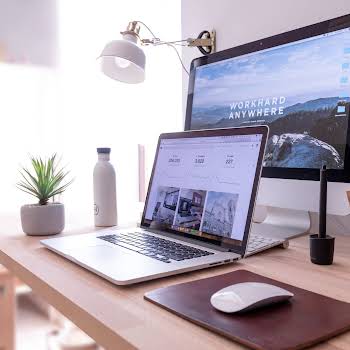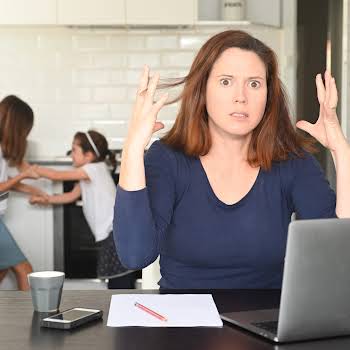
By Megan Burns
16th Jun 2020
16th Jun 2020
While we’re all at home, it can seem harder than ever to avoid our ubiquitous screens and give our poor eyes a break, but there are some steps you can take to combat screen fatigue.
We’ve been hearing for years about the potential harm that looking at screens all day can cause us. The blue light that they emit, as well as how close they are to our eyes can cause everything from eye strain, headaches, dry eyes, tiredness, and difficulty focusing on objects far away from you. It also disrupts our sleep.
But when we’re doing seemingly everything on screens at the moment: working from home, homeschooling children, learning new skills, keeping ourselves entertained and informed, and communicating with our friends and family, it’s not as easy as simply not using screens.
They’re undoubtedly more important than ever for us to stay connected, but our eyes shouldn’t have to suffer as a result. Here are some ways that you can reduce eye fatigue.
The 20:20:20 rule
Looking at one thing for a long time increases your risk of eye strain, so it is advised that when you are using a screen, every 20 minutes you should look at something that is 20 feet (around 6 metres) away, for 20 seconds. This gives the muscle that focuses your eyes a chance to relax.
Eye yoga
Yes, it sounds ridiculous, but the 20:20:20 rule reminds us that we have muscles in our eyes that need the same kind of care as the rest of our body. Your back would get stiff if you sat in a chair all day without moving — but rather than let this happen you would get up and stretch every so often, and you can do the same for your eyes.
When your eyes need a break, look left and hold for a few seconds, then do the same looking right, up, and down, and repeat several times. Close your eyes in-between each set, and give your eyes a chance to relax.
Try screen glasses

Perfect for those of us who have no choice but to spend a significant amount of our day looking at screens, screen glasses have special lenses that block blue light from reaching your eyes. This can help prevent screen-induced headaches, eye-strain and difficulty getting to sleep.
As someone who used to suffer frequent headaches at the end of the work day, I can attest that these ones from Irish brand Ambr have personally helped me a lot.
Avoid the contacts
If you wear contact lenses, it’s recommended that you stick to glasses when looking at a screen like a laptop or computer for hours, as contacts dry your eyes out. If you’re committed to your lenses, make sure you have suitable drops to hand to combat any dryness you experience.
Make sure your lighting is right
If you’re using a screen in an environment that is either too dark or too light, your eyes will be under greater strain than in a well-lit room. Avoid a spot that’s in glaring sunlight, but make sure your room is adequately lit. A lamp near your working area can help direct light to where you need it.
Position your screen properly
A screen at an awkward height will irritate your eyes quickly, so position it in line with your eye level. The screen should also be 45-75cm away from you and tilted back slightly to avoid glare from any ceiling lights.
Blink more
You may not realise, but we actually blink much less frequently when we’re looking at screens. This causes them to dry out much faster, as every time we blink we refresh our eyes with fluid. Making an effort to look away from your screen will naturally make you blink more, but the next time your eyes feel dry, pay attention to how much you’re blinking.
Featured image: Nicole Wolf via Unsplash
Read more: Feeling tense stuck indoors? Doing these 4 things could help ease your stress levels
Read more: #IMAGEReads: 4 gripping book series worth starting while you’re stuck inside
Read more: Poor WiFi signal driving you nuts? Google has launched Nest WiFi system, and it’s as beautiful as it is useful






















